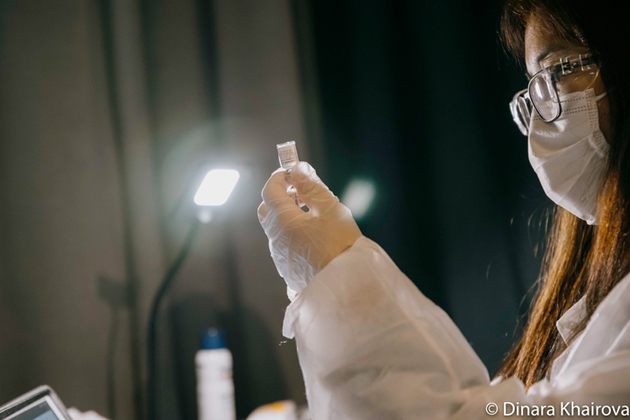Researchers at UBC’s faculty of medicine have conducted the world’s first molecular-level structural analysis of the Omicron variant spike protein. The findings were published in Science.
The analysis - done at near atomic resolution using cryo-electron microscopy - reveals how the heavily mutated Omicron variant attaches to and infects human cells.
“Understanding the molecular structure of the viral spike protein is important as it will allow us to develop more effective treatments against Omicron and related variants in the future,” said lead author Dr. Sriram Subramaniam (he/him), professor in UBC’s department of biochemistry and molecular biology. “By analyzing the mechanisms by which the virus infects human cells, we can develop better treatments that disrupt that process and neutralize the virus.”
The spike protein, which is located on the outside of a coronavirus, enables SARS-CoV-2 to enter human cells. The Omicron variant has an unprecedented 37 mutations on its spike protein - three to five times more than previous variants.
The structural analysis revealed that several mutations create new salt bridges and hydrogen bonds between the spike protein and the human cell receptor known as ACE2. The researchers concluded that these new bonds appear to increase binding affinity - how strongly the virus attaches to human cells - while other mutations decrease the strength of this bond.
“Overall, the findings show that Omicron has greater binding affinity than the original virus, with levels more comparable to what we see with the Delta variant,” said Dr. Subramaniam. “It is remarkable that the Omicron variant evolved to retain its ability to bind with human cells despite such extensive mutations.”
Based on the observed increase in binding affinity and antibody evasion, the researchers say that the spike protein mutations are likely contributing factors to the increased transmissibility of the Omicron variant.






